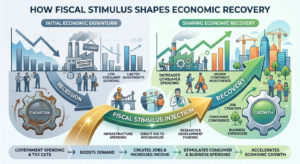Money plays a crucial role in our lives, yet many people feel overwhelmed when it comes to managing their finances. Taking control of your money isn’t just about earning more—it’s about making smart decisions with what you have. Whether you’re looking to get out of debt, build savings, or invest for the future, this guide will help you develop financial confidence and security.
Why Financial Control Matters
Financial stress is one of the leading causes of anxiety for many people. Without a solid plan, it’s easy to fall into debt, live paycheck to paycheck, or miss out on opportunities to build wealth. By taking charge of your finances, you can:
- Reduce financial stress and gain peace of mind
- Prepare for emergencies and unexpected expenses
- Achieve financial independence and long-term security
- Make informed decisions about spending, saving, and investing
Step 1: Assess Your Financial Situation
Before making any changes, take a close look at where you stand financially. This includes:
- Income: How much money do you earn each month?
- Expenses: Where is your money going? Track all fixed (rent, utilities) and variable (entertainment, dining out) expenses.
- Debt: What do you owe (credit cards, loans, mortgages), and what are the interest rates?
- Savings: How much do you have set aside for emergencies, retirement, or other goals?
Once you have a clear picture of your finances, you can start making a plan to improve them.
Step 2: Create a Budget That Works
A budget is a tool that helps you allocate your money wisely. One popular method is the 50/30/20 rule:
- 50% for Needs: Rent, food, transportation, healthcare
- 30% for Wants: Entertainment, dining out, hobbies
- 20% for Savings & Debt: Emergency fund, retirement, paying off loans
Tips for sticking to your budget:
✔ Use budgeting apps to track expenses automatically
✔ Set spending limits for non-essential purchases
✔ Review your budget regularly and adjust as needed
Step 3: Build an Emergency Fund
An emergency fund is your financial safety net. It prevents you from going into debt when unexpected expenses arise. Aim to save three to six months’ worth of expenses in a separate, easily accessible account.
How to build your emergency fund:
- Start small: Even saving $10–$20 a week adds up over time
- Automate savings: Set up automatic transfers to your emergency fund
- Cut unnecessary expenses: Redirect that money into savings
Step 4: Manage Debt Wisely
Debt can either be a tool or a trap—it all depends on how you manage it. Focus on paying off high-interest debt (like credit cards) first, while making minimum payments on other debts.
Effective debt repayment strategies:
- Avalanche Method: Pay off debts with the highest interest rates first
- Snowball Method: Pay off the smallest debts first for quick wins and motivation
- Refinancing or consolidation: Lower interest rates can make debt easier to manage
Avoid taking on new debt unless absolutely necessary, and always read loan terms carefully.
Step 5: Start Investing for the Future
Saving money is important, but investing allows your money to grow over time. The earlier you start, the more time your investments have to compound.
Types of investments:
- Stocks: High risk, high reward potential
- Bonds: Lower risk, steady returns
- Mutual Funds & ETFs: Diversified investment options
- Retirement Accounts (401k, IRA): Tax-advantaged accounts for long-term savings
If you’re new to investing, consider speaking with a financial advisor or using beginner-friendly investment platforms.
Step 6: Improve Your Financial Knowledge
Financial literacy is an ongoing journey. The more you learn, the better decisions you can make.
Ways to improve your financial knowledge:
📚 Read books on personal finance (e.g., The Total Money Makeover by Dave Ramsey)
🎧 Listen to finance podcasts for daily tips
💻 Take free online courses on money management
📝 Follow finance blogs and reputable websites
Final Thoughts
Taking control of your finances is empowering and life-changing. By assessing your situation, creating a budget, saving for emergencies, managing debt, and investing wisely, you can build a strong financial future.
Remember, small steps lead to big results. Start today, and your future self will thank you!







